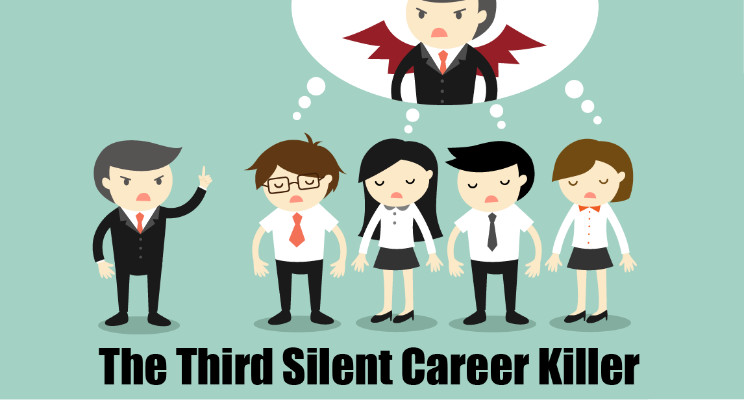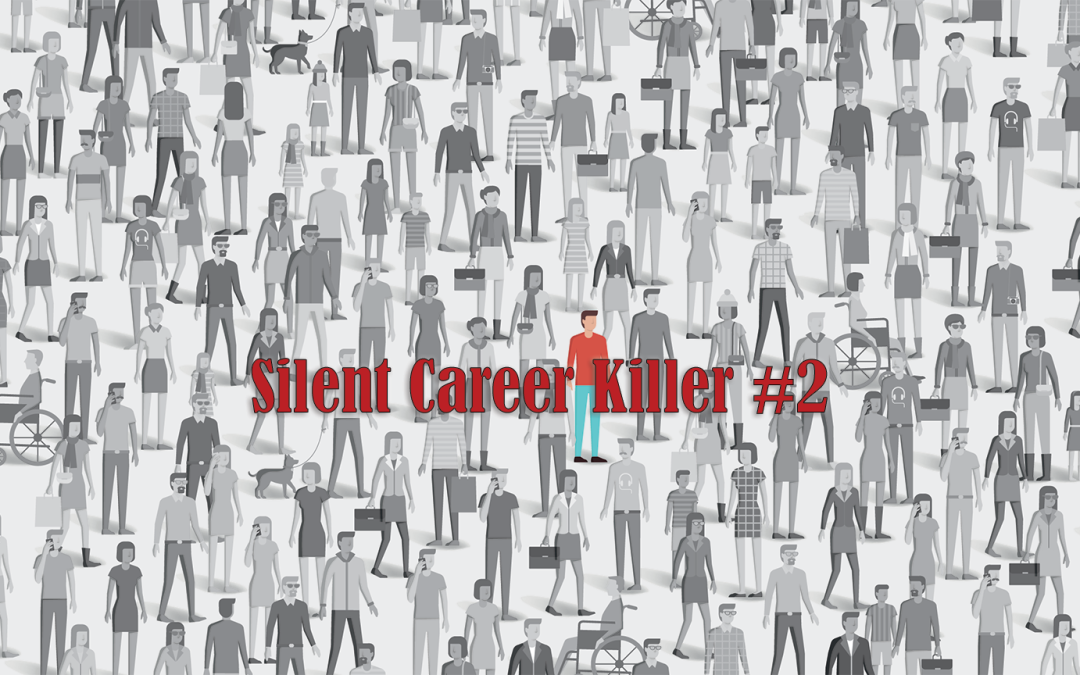
Third Silent Career Killer: Bad Attitudes
Third Silent Career Killer: Bad Attitudes
You feel stuck.
You’ve been at the same job, grinding away at the same level without progression or promotion for years.
You’ve made sure you’re not the smelly kid in the room.
Your projects are done on time or ahead of time and are flawless.
So what’s the problem?
It is time to take a look at another silent career killer that holds back too many employees.
“If I’m not smelly, what is it?” you ask.
Your attitude!

“My attitude is just fine,” you say. “It’s my boss that has a problem. They play favorites. They don’t like me.”
While that could be true, you also need to be aware of the attitude you project in the office.
When a co-worker asks you how you are doing, do you answer with something like
“Hanging in there,” or, my favorite, “Day-by-day?”
Do you notice when a team member in the next cubicle is drowning in work? If you’ve finished up for the day and are checking your Facebook page and Instant Messaging friends, do you offer to help or continue to IM?
Your actions and attitude can play a silent role in helping or killing your career.
I’ve had the pleasure of working with exceptional people over my career, and some individuals are naturally gifted with the technical skills to achieve in the workforce. But somehow, in their mind, they never seem to advance as fast or as far as they think they deserve.
Technical skills will only get you so far. You have to work on your soft skills – your emotional intelligence – to get to the next level.

You need to be aware of how you affect and interact with others. Doing a good or even a great job, but with a bad or indifferent attitude will limit your career. Your coworkers and managers all notice your attitude.
Do you know one of those negative-types who always has something to complain about in the office? I knew someone who complained about the type of toilet paper in the office and the tea they served in the kitchen. Nothing was good enough for this person.
Guess what? No one wanted to talk to this person because all they did was complain.
Don’t let your attitude limit you. Not when it is something you can control.
Here are a few ways I’ve learned to deal with stress and negativity in the office:
- Go for a walk, even if it is just around your office floor. I need to physically remove myself from whatever or whoever it is that is making me feel negative at that moment. Taking a walk around the block or getting outside for fresh air can really help to change your perspective.
- Music. Pop in some earbuds if it is permitted at your desk, or go to lunch and have some playlists prepared to bust your negative mood up. I have a few playlists based on situations and moods for the office. What is a bit amusing is my staff has learned to gauge my moods by which playlist is on. For me, James Taylor and Jimmy Buffett are my go-to personal negativity busters. I just can’t stay mad or negative and listen to them.
- Do a 30-minute switch-up. Change what you are working on every 30 minutes for two hours, choosing projects you enjoy working on. Set a timer to make sure you keep to the limit. By switching it up you force yourself to focus on something other than the negativity and its cause.
As most professionals do, as I have changed jobs over the years, I have also kept a mental short list of people I would love to work with again.
What is first on my list’s requirements?
The individual is able to uphold a high level of work standards.
Exceeds expectations, exemplary work product, due dates completed in advance, is a team player, loyal, and loves marketing – what I would consider the basics.
Second on my requirement list? Having a positive attitude.
Now, this doesn’t mean you can’t have a bad day, week or month. I know I’ve had my share and I’m one of those annoying happy people.
But don’t let it become a habit in the workplace!
You can control your attitude and your career. It is in your hands.






